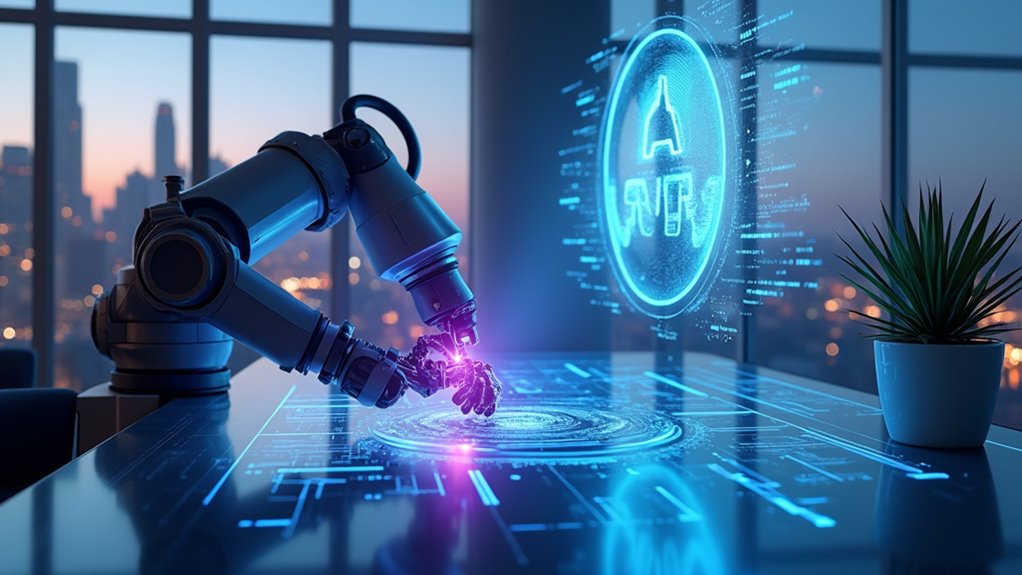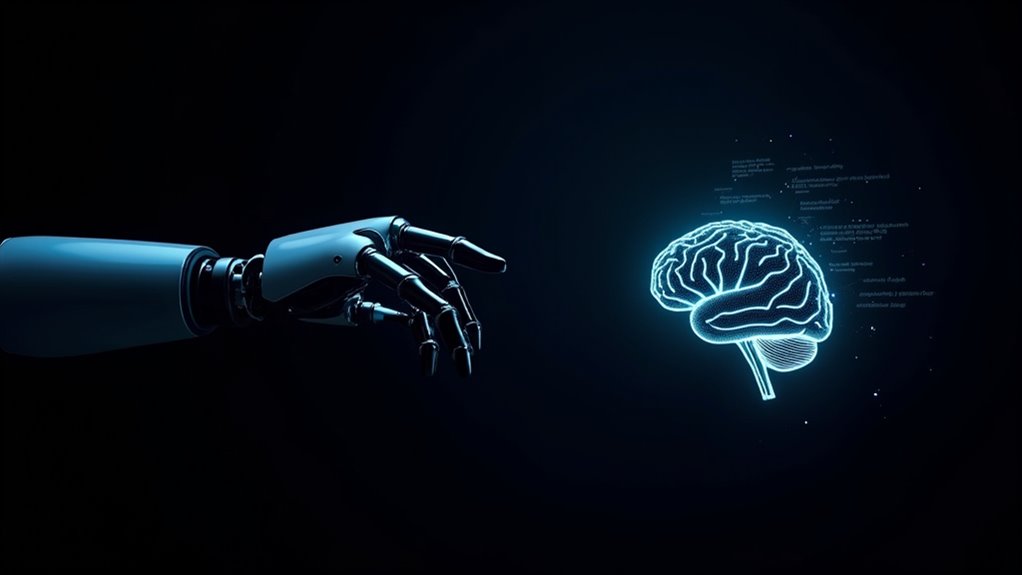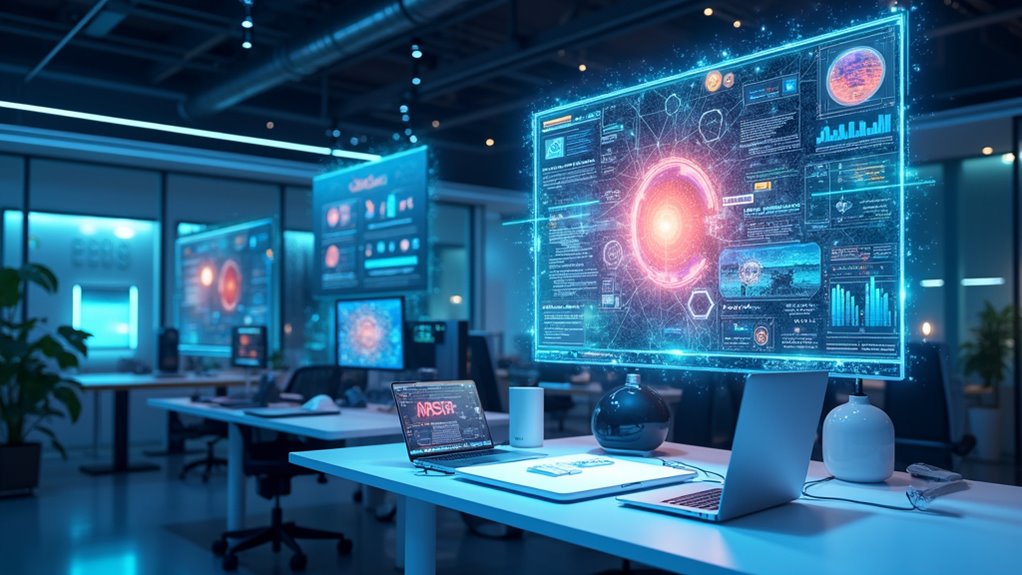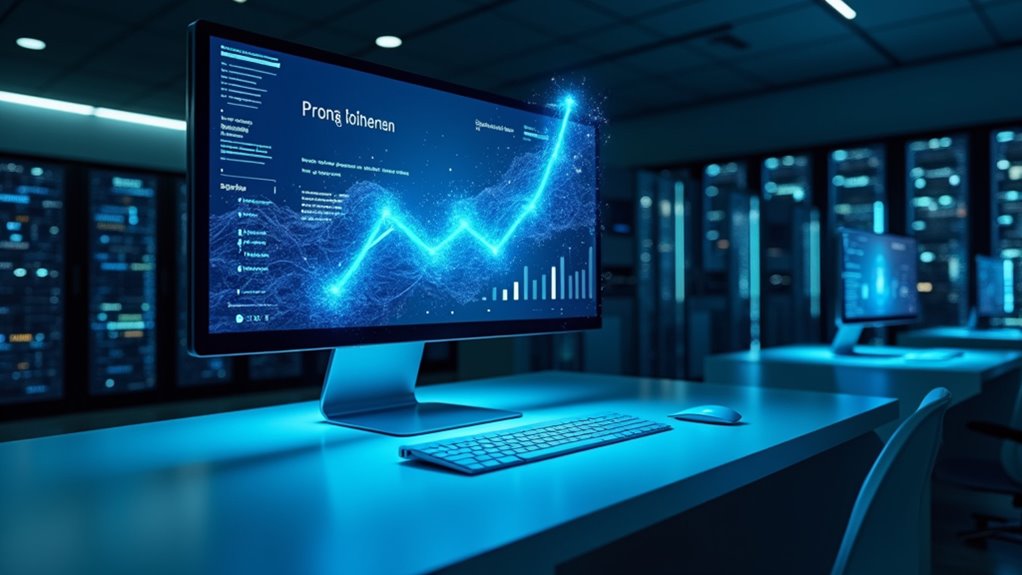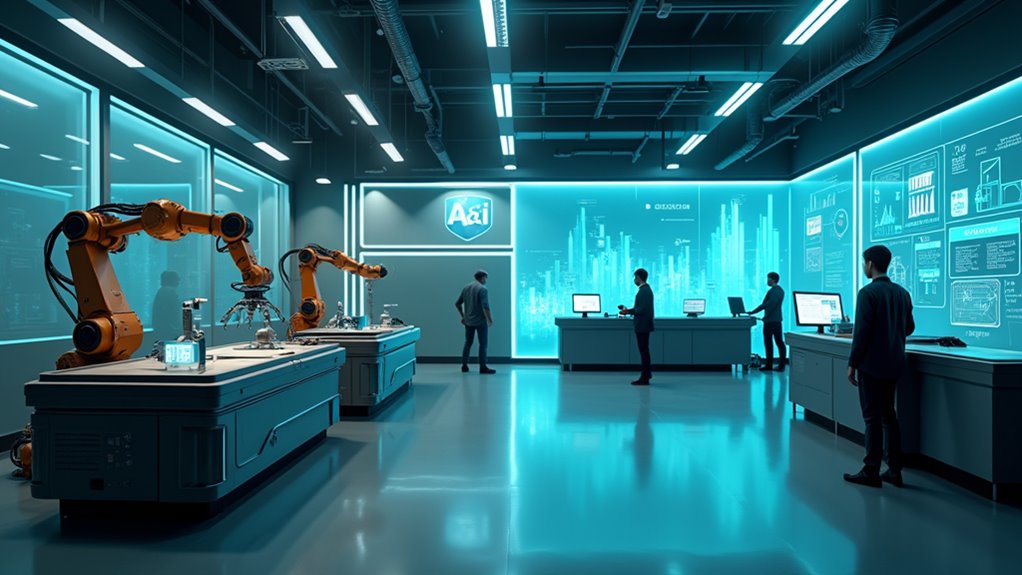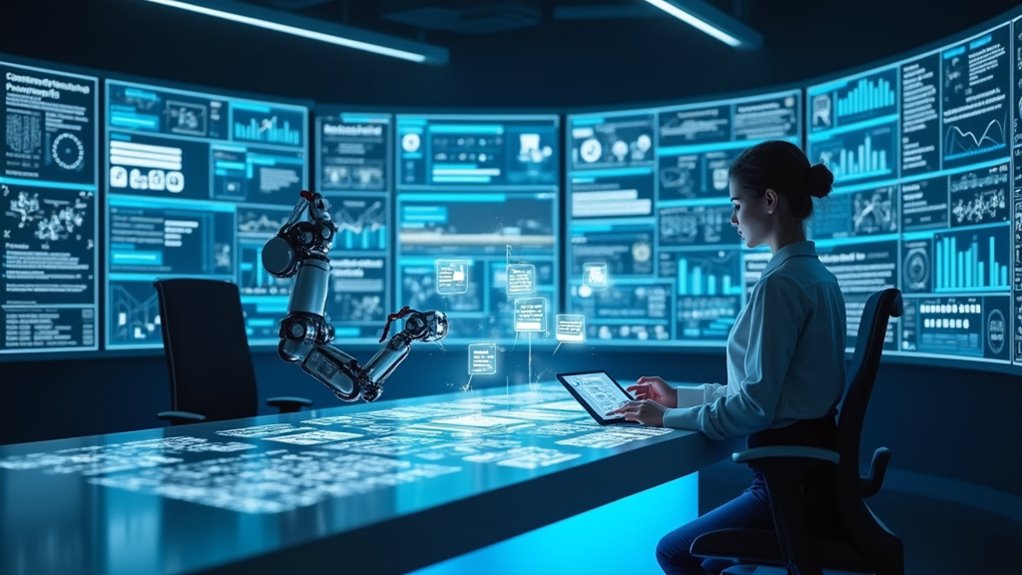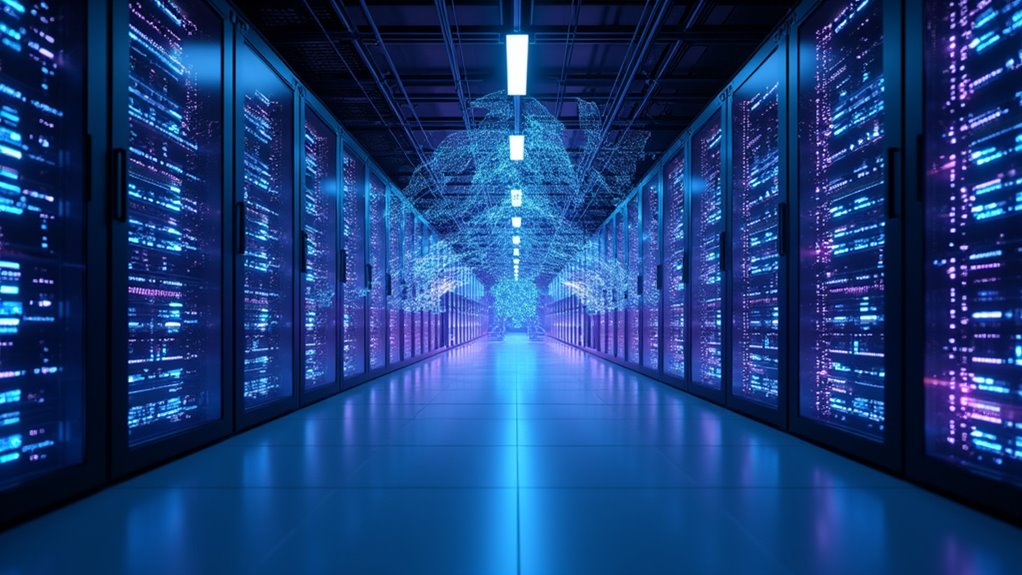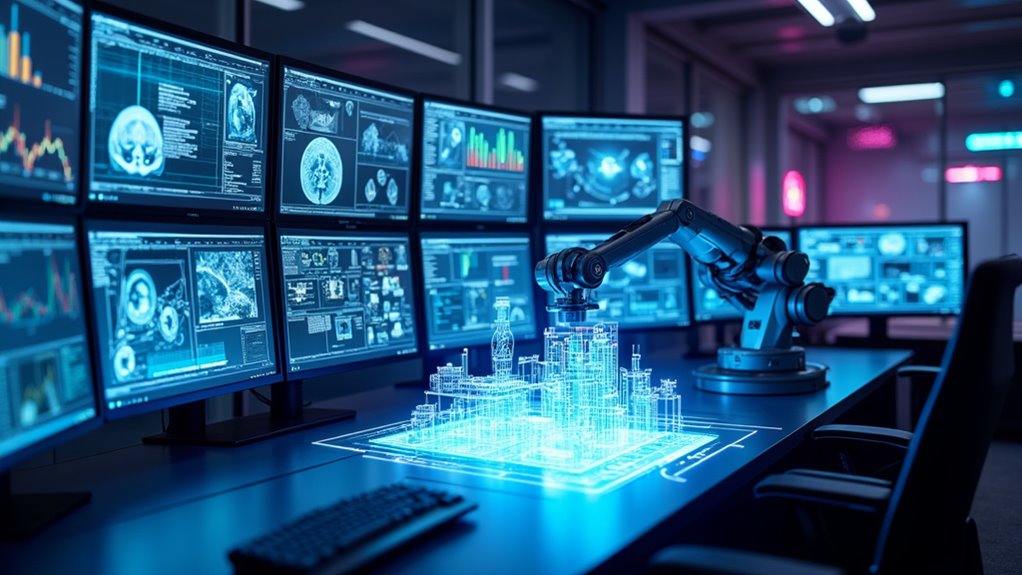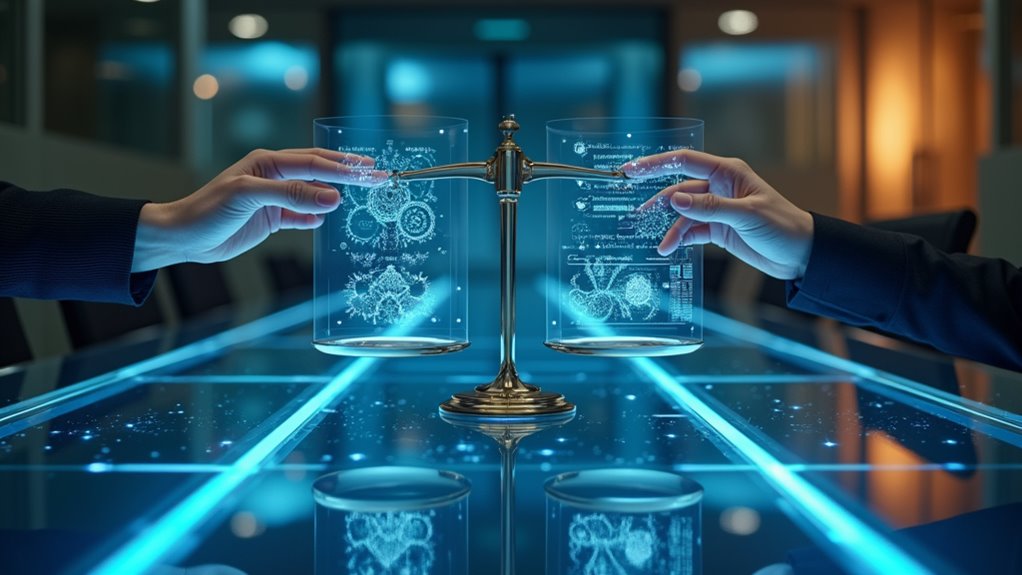AI is trending because it’s massively boosting business efficiency – with 72% of organizations already using it somewhere. Companies that embrace AI are 23 times more likely to snag new customers, while productivity jumps 40%. It’s transforming daily life too (just ask ChatGPT’s 180 million users). Yes, it’s disrupting jobs, but it’s also creating more than it eliminates. The $15.7 trillion economic impact by 2030 explains why everyone’s rushing to adapt or risk obsolescence.
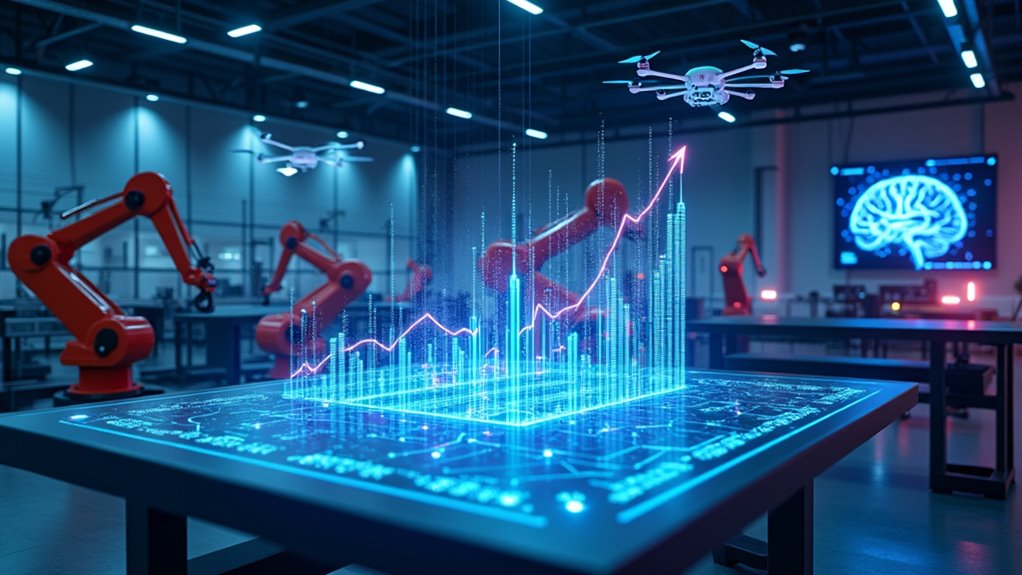
While technological innovations have always stirred excitement, artificial intelligence has transcended mere buzz to become the defining force reshaping our world. The numbers tell the story clearly: small businesses boast an 89% AI adoption rate for task automation, and the global AI market expects to surge by 38% in 2025. This isn’t just tech talk—it’s a fundamental shift happening right under our noses.
AI accessibility has dramatically improved, with cloud-based platforms offering scalable solutions that businesses of all sizes can implement without breaking the bank. But this widespread adoption raises ethical considerations that can’t be ignored. As AI systems make more decisions, who’s responsible when things go wrong? AI began with rule-based systems in the 1950s-60s that could solve specific problems but lacked the adaptability we see today. AI regulations struggle to keep pace with innovation, creating a Wild West environment where market competition drives advancement faster than governance frameworks can adapt. Don’t fool yourself—this matters to everyone, not just tech enthusiasts.
AI has democratized innovation while outpacing ethical governance—a high-stakes reality affecting us all, not just the tech-savvy.
The economic impact speaks volumes. AI will contribute a staggering $15.7 trillion to the global economy by 2030. Organizations using AI are 23 times more likely to acquire new customers, and employee productivity jumps by 40% with proper implementation. No wonder 72% of organizations have incorporated AI in at least one business area! The data shows efficiency gains have become a primary motivator for companies adopting AI technologies.
Perhaps most fascinating is AI’s dual role in the labor market. While it may eliminate 85 million jobs by 2025, it’s projected to create 97 million new ones. Data engineers and scientists have become the rock stars of the corporate world, commanding premium salaries as businesses scramble to harness AI capabilities.
ChatGPT’s 180 million users demonstrate how quickly AI can transform everyday activities. By 2025, we’ll see approximately 8 billion voice assistants in use, revolutionizing how people interact with technology. Meanwhile, industries from healthcare to automotive manufacturing are seeing revolutionary changes. AI detects diseases faster, spots cyber threats in real-time, and promises manufacturing gains of $3.8 trillion by 2035.
The trend is clear: AI isn’t just getting popular—it’s becoming essential. Businesses that fail to adapt risk obsolescence in an increasingly AI-powered economy.
Frequently Asked Questions
How Do I Start a Career in AI?
Starting an AI career demands strategic education pathways. First, master Python and get cozy with TensorFlow or PyTorch – they’re non-negotiable.
Then, pick your battlefield: machine learning engineering, data science, or AI ethics? Industry job opportunities are exploding, but employers want proof you can actually build something.
Create projects, push them to GitHub, and network like your career depends on it (because it does).
Can AI Replace Human Creativity Entirely?
AI cannot entirely replace human creativity. Machine imagination lacks emotional depth and originality, merely recombining existing patterns rather than generating truly novel ideas.
While AI tools can enhance productivity, authentic creativity remains fundamentally human. Creative collaboration between humans and AI offers the best path forward—machines handle routine tasks while humans contribute emotional intelligence and intuitive leaps.
The future isn’t about replacement, but partnership. AI assists; humans innovate. Together, they complement each other’s limitations.
What Ethical Concerns Surround Widespread AI Adoption?
Widespread AI adoption raises several ethical red flags.
Bias mitigation remains a struggle, as algorithms can perpetuate societal prejudices without proper oversight.
Privacy issues? Massive, with your data potentially harvested without meaningful consent.
Job displacement threatens millions, while accountability frameworks lag dangerously behind innovation.
The real problem isn’t the technology itself—it’s that our ethical guardrails aren’t keeping pace.
Companies must implement transparent AI governance, or we’ll all pay the price for their unchecked “innovation.”
How Much Computing Power Does AI Development Require?
AI development demands enormous computing power, with hardware requirements increasing exponentially as models grow more complex.
Modern AI systems rely on specialized processors like GPUs and TPUs that can handle massive parallel operations. These processing capabilities must scale to manage billions of parameters in large language models.
Data centers powering AI now consume gigawatts of electricity, creating infrastructure challenges worldwide. As AI advances, computational demands continue to grow, straining both technology and energy resources.
Will AI Eventually Develop Consciousness or Self-Awareness?
The question of machine consciousness remains hotly debated.
While AI systems grow increasingly sophisticated, true self-awareness implications extend beyond mere pattern recognition. Researchers can’t agree if consciousness requires biological components or could emerge in complex systems.
Some experts predict conscious AI by 2035, others insist it’s impossible.
What’s clear? We need ethical frameworks now, before potentially conscious systems emerge.
After all, wouldn’t you want rights if you suddenly woke up inside a server farm?
